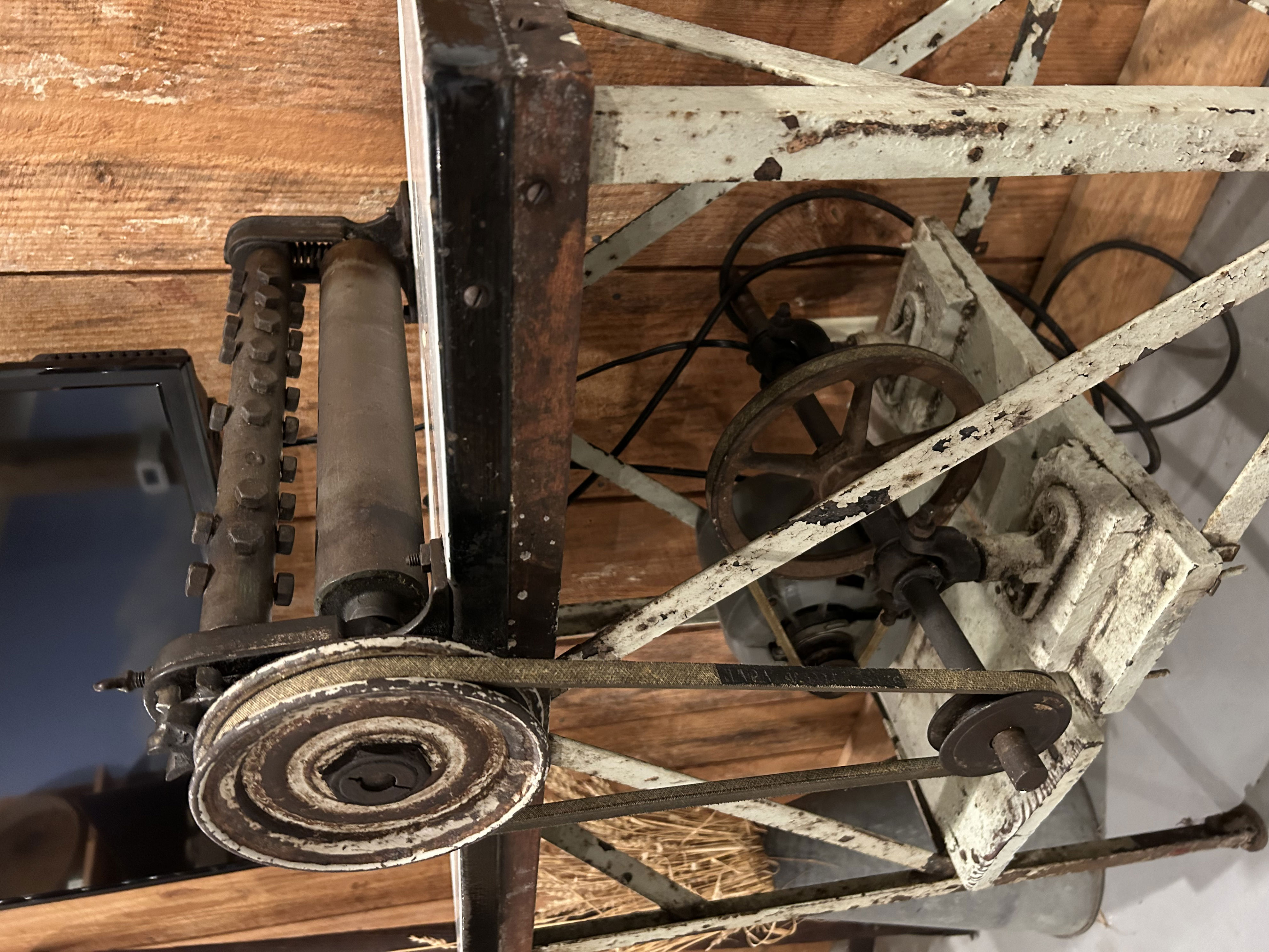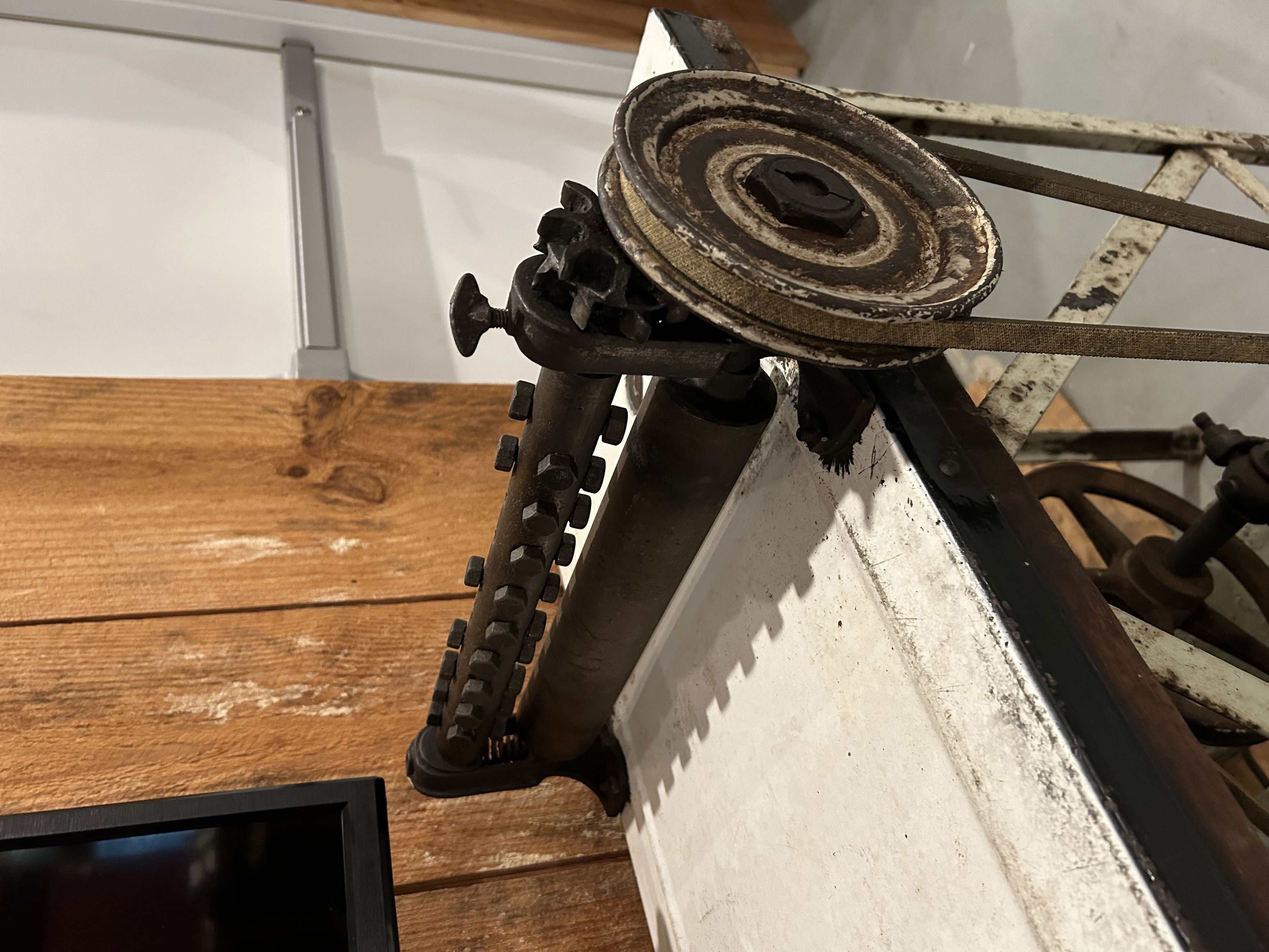Historians Say They've Solved the Mystery of a Curious 100-Year-Old Contraption Discovered in Storage
Historians in a small town in Maryland have been trying to figure out the purpose of an unusual device that has been stored away for years. Recently, they solicited the public's assistance to identify the puzzling mechanism.
Now, they claim they've finally cracked the case. The peculiar object is a mechanical "beaten biscuit" bakeware used to make a dense baked good that was historically favored in the American South.
The society asked its followers if they knew what the device was or what business it was associated with.
The device stands on a ceramic counter and has two long metal rods put side by side. The bottom rod is smooth, like a rolling pin, while the top rod has buttons stamped out into it in a hexagonal pattern.
The gadget contains a fairly modern motor, while the majority of its other components date back about 100 years. It has been stored since the 1990s. According to records, another historical organization in Delaware donated a comparable device, but unfortunately, this information doesn't provide any additional insights into the donation.
We were left without active members who could provide us with more information about our collection. We started using a new system last year to help manage our inventory more efficiently, and we've been making good progress in solving these kinds of mysteries.

In the meantime, people on the internet were guessing what the old device might have been used for. Some thought it could've been used to stretch out taffy, while others thought it might've helped dry out clothes after washing. Others suggested it could've been used to soften leather or make meat more tender.
Historians also had their own arguments to consider.
Lauren Miller spoke in late October. “[It was] created by a man trying to assist his aunt with her business, and the assumption is that this would have helped remove air from the dough when the biscuits were being made.”
The magazine's Jed Portman in 2015.
For many years, the long and brutal work was often given to enslaved cooks.
Bakers commonly use a fork to poke holes in the top of the dough for steam to be able to escape.

, an entrepreneurial Black cook living in Columbia, Missouri, at the turn of the 20th century, became a bit of a celebrity for her delicious biscuits.
She catered events of all sorts. … Former Columbia residents who now live in New York, Denver, and Los Angeles would place orders for her biscuits and fruit cake.
The officials at the Dorchester County Historical Society were curious if their enigmatic machine was designed to simplify and mechanize the arduous process of making biscuits. This notion was backed by the fact that Cambridge, which is the location of the historical society, was once home to a bakery that specialized in biscuits, according to WBOC.
There's the Maryland Beaten Biscuit brand, but Cambridge has its own Camper Sisters Bakery, which also makes beaten biscuits, and some of their family members continue to sell them.
On November 1, the society finally received some information that supported their previous suspicions.
“The man who brought it here verified it's the same machine he brought from its previous location in 1992,” says Phillips.

Post a Comment